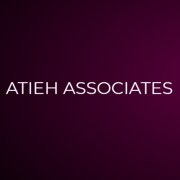Best Debt Capital Markets Lawyers in Iran
Share your needs with us, get contacted by law firms.
Free. Takes 2 min.
Or refine your search by selecting a city:
List of the best lawyers in Iran
About Debt Capital Markets Law in Iran
Debt Capital Markets (DCM) in Iran refer to the sector of the financial market where governments, companies, and financial institutions raise funds by issuing debt instruments such as bonds and sukuk (Islamic bonds). These markets allow issuers to obtain long-term financing from investors, both domestic and international, while offering investors investment opportunities with fixed or floating returns. In Iran, DCMs are structured to comply with Islamic finance principles, meaning traditional interest-bearing instruments are replaced by Sharia-compliant structures. This sector has gained importance for funding infrastructure, business expansion, and government projects, especially as access to international capital can be limited due to sanctions.
Why You May Need a Lawyer
Navigating the Iranian debt capital markets can be complex due to regulatory requirements, local market practices, and the unique nature of Islamic finance principles. Common situations where people may require legal help include:
- Structuring and issuing sukuk or bonds to ensure compliance with Iranian law and Sharia principles
- Drafting and reviewing contracts or offering documents for debt instruments
- Advising on cross-border transactions involving currency controls or sanctions-related considerations
- Resolving disputes between issuers, investors, or intermediaries
- Guidance for foreign investors entering Iran’s DCM sector
- Interpreting complex regulations and ensuring compliance with updates or new circulars
- Registering and listing debt instruments on Iranian exchanges, such as the Iran Fara Bourse (IFB)
Local Laws Overview
Iran’s debt capital market is governed by a combination of Islamic law, national legislation, and regulations issued by financial supervisory authorities. The key elements include:
- Sharia Compliance: All debt instruments must avoid interest payments and instead use asset-backed or participatory structures like sukuk.
- Securities Market Act: This law, along with directives from the Securities and Exchange Organization (SEO), regulates the issuance, listing, and trading of securities including debt instruments.
- Securities and Exchange Organization (SEO): The SEO oversees market participants, approves public offerings, and reviews offering documents for compliance.
- Iran Fara Bourse (IFB) and Tehran Stock Exchange: These exchanges list debt instruments and supervise secondary market trading.
- Foreign Investment: Laws and regulations set processes for foreign investors and issuers, with specific approvals needed and compliance with sanctions restrictions.
- Central Bank Regulations: Currency control and anti-money laundering rules apply to capital market transactions and settlements.
- Taxation: There are specific tax treatments for returns from debt instruments, with some exemptions for Sharia-compliant products.
Frequently Asked Questions
What types of debt instruments can be issued in Iran?
The main instruments are sukuk (Islamic bonds), treasury bills, participation papers, and other Sharia-compliant certificates.
Are interest-bearing bonds allowed in Iran?
No, interest-bearing instruments are not permitted. All debt instruments must comply with Sharia principles, using profit-sharing or asset-backed models.
Who regulates the debt capital markets in Iran?
The Securities and Exchange Organization (SEO) is the primary regulator, while the central bank and relevant governmental bodies also play roles.
Can foreign investors participate in Iran’s debt capital markets?
Yes, but they must obtain necessary approvals and comply with foreign investment regulations, as well as international sanctions and currency control rules.
What is sukuk and how does it work?
Sukuk are Islamic financial certificates similar to bonds, but structured to pay returns without involving interest, instead using profit-sharing or asset-backed arrangements.
How are debt instruments listed and traded in Iran?
Debt instruments are listed on exchanges like the Iran Fara Bourse, following approval from the SEO, and can be traded in the secondary market by qualified investors.
What legal protections exist for investors?
Iranian laws offer frameworks for disclosure, transparency, and dispute resolution, with oversight from regulatory bodies to protect investors’ rights.
Do DCM transactions in Iran require Sharia board approval?
Yes, issuances must obtain Sharia board approval to ensure compliance with Islamic finance principles prior to their offering.
What are the tax implications of investing in Iranian debt capital markets?
Returns from sukuk and certain other instruments can be tax-exempt or have favorable tax conditions, depending on the structure and the investor’s status.
Can legal disputes in DCM be resolved in Iranian courts?
Yes, legal disputes can be brought before Iranian courts, or resolved through arbitration or other alternative dispute resolution mechanisms as stipulated in agreements.
Additional Resources
When seeking legal advice or information regarding debt capital markets in Iran, some useful resources and organizations include:
- Securities and Exchange Organization of Iran (SEO) - Supervises capital markets and issues regulations
- Iran Fara Bourse (IFB) - Main platform for listing and trading debt instruments
- Central Bank of Iran - Sets monetary policy, currency rules, and oversees settlement
- Official Gazette and Ministry of Finance - For publication of new laws and policies
- Iranian Bar Association - For finding qualified capital market lawyers
- Chambers of Commerce and investment promotion agencies - Advice on market entry
- Accredited Sharia boards - For guidance on Islamic finance compliance
Next Steps
If you require legal assistance in Iran’s Debt Capital Markets sector, consider the following steps:
- Define your objectives, such as issuing debt, investing, or resolving a dispute
- Gather relevant documents and information related to your intended transaction
- Consult with a lawyer who specializes in Iranian capital markets law and has experience in Sharia-compliant financial instruments
- Ensure your legal advisor is familiar with recent regulatory updates and understands cross-border considerations if foreign entities are involved
- Request a clear explanation of your options, risks, and compliance requirements
- Remain informed about ongoing legal and regulatory developments in Iran’s financial markets
Taking these steps will help you navigate the complexities of Iran’s debt capital markets more confidently and ensure your interests are protected under the relevant legal framework.
Lawzana helps you find the best lawyers and law firms in Iran through a curated and pre-screened list of qualified legal professionals. Our platform offers rankings and detailed profiles of attorneys and law firms, allowing you to compare based on practice areas, including Debt Capital Markets, experience, and client feedback.
Each profile includes a description of the firm's areas of practice, client reviews, team members and partners, year of establishment, spoken languages, office locations, contact information, social media presence, and any published articles or resources. Most firms on our platform speak English and are experienced in both local and international legal matters.
Get a quote from top-rated law firms in Iran — quickly, securely, and without unnecessary hassle.
Disclaimer:
The information provided on this page is for general informational purposes only and does not constitute legal advice. While we strive to ensure the accuracy and relevance of the content, legal information may change over time, and interpretations of the law can vary. You should always consult with a qualified legal professional for advice specific to your situation.
We disclaim all liability for actions taken or not taken based on the content of this page. If you believe any information is incorrect or outdated, please contact us, and we will review and update it where appropriate.
Browse debt capital markets law firms by city in Iran
Refine your search by selecting a city.

















